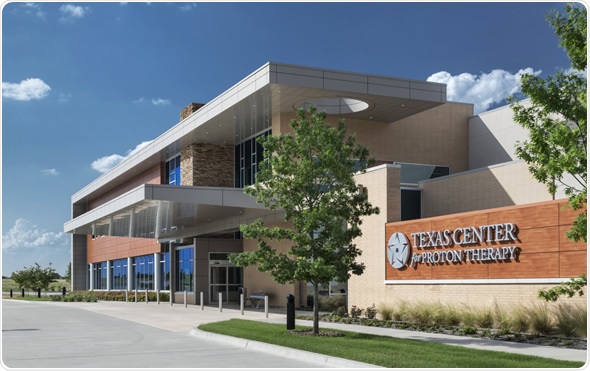Texas Center for Proton Therapy has announced the hiring of three dedicated radiation oncologists with experience in radiation oncology and proton beam cancer treatment, completing the center’s key medical staff. Scheduled to open late this year, the center will provide patients access to the newest and most advanced proton therapy technology available, together with a care team that has more than 70 years of combined proton therapy experience.

The center’s four physicians are the only proton therapy specialists in North Texas. Physicians joining the center are:
- Dr. Daniel Hamstra: Prior to joining Texas Center for Proton Therapy, Hamstra held several leadership positions in the University of Michigan Health System, including associate chair for medical education in the radiation oncology department.
- Dr. Victor Mangona: Mangona was a pediatric radiation oncology fellow at The University of Texas MD Anderson Cancer Center in Houston. Prior to that role, Dr. Mangona was chief resident in radiation oncology at Beaumont Health System in Royal Oak, Mich.
- Dr. Jared Sturgeon: Sturgeon was a radiation oncologist at the McLaren Cancer Institute in Flint, Mich. He also previously completed a dedicated proton therapy fellowship at The University of Texas MD Anderson Cancer Center in Houston. His fellowship director was Dr. Andrew K. Lee, who is now medical director at Texas Center for Proton Therapy.
“Our patients will benefit from the collective and extensive experience of the ‘dream team’ of proton therapy experts and innovators that we have assembled at Texas Center for Proton Therapy,” said Dr. Steve Paulson, chairman and president of Texas Oncology. “As research continues to confirm the effectiveness of proton beam therapy for more types of cancers, these pioneering oncologists will be on the forefront of applying this precise radiation treatment to create more cancer survivors.”
Proton therapy is an advanced form of radiation treatment that delivers precisely targeted radiation to tumors, minimizing damage to surrounding healthy tissue and reducing side effects, which allows patients to maintain quality of life during and after treatment. After a proton beam treats a tumor, it can stop instead of proceeding through the body, preserving more surrounding healthy tissue. Conventional radiation therapy with X-rays cannot do that.
Proton therapy is a significant development in cancer treatment for patients. There’s a long history of experience with proton therapy for a variety of cancers, but as technology has improved, even more types of cancer may be better treated with proton therapy. This is the only center in Texas offering the latest generation proton beam technology by combining pencil-beam scanning along with on-board cone-beam CT image-guidance.
Proton therapy is especially important for pediatric patients whose growing bodies are at increased risk for radiation damage even at low doses, and in adult patients with cancers in the brain, spine, chest, prostate, head and neck, all of which are surrounded by highly sensitive tissues.
Not all proton therapy is the same. Texas Center for Proton Therapy is one of only a few centers in the nation that offers pencil-beam scanning with on-board cone beam CT imaging to meticulously guide treatment. Pencil-beam scanning treatment, pioneered in North America by the center’s medical director, Dr. Andrew Lee, uses a precise ultra-fine proton beam to treat each layer of the tumor. It’s an ideal technology for irregularly shaped tumors near sensitive areas.

“We have the opportunity to make a profound difference in patients’ lives by providing compassionate, quality care with the best technological tools. We expect to treat patients of varying ages with different types of cancer, and who may have other special clinical considerations,” said Dr. Andrew Lee, medical director, Texas Center for Proton Therapy. “Having physicians and others on our medical team with diverse experience in proton therapy is key to our ability to deliver high quality cancer care to every patient we treat.”
Patients interested in this technology and determining if proton therapy is right for them, should visit www.TexasCenterForProtonTherapy.com or call the center at 469-513-5500.
About Texas Center for Proton Therapy
Texas Center for Proton Therapy is the North Texas region’s first proton therapy center. The center features latest-generation technology, including pencil-beam scanning and image-guided proton therapy, providing precise radiation treatment with the opportunity to reduce side effects. Opening in late 2015, the facility will provide advanced cancer treatment through Texas Oncology, an independent oncology practice and pioneer of community-based cancer care. For more information, visit www.TexasCenterforProtonTherapy.com or call 469-513-5500